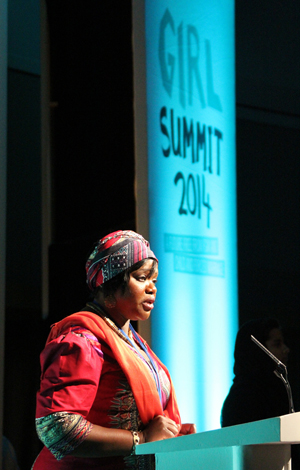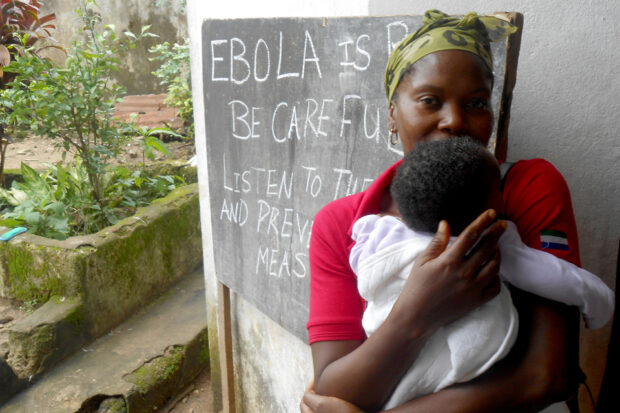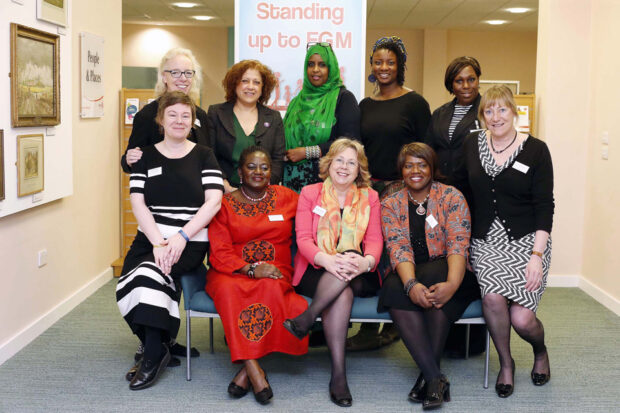The practice of female genital mutilation (FGM) in Sierra Leone is shrouded in great secrecy and mysticism. It usually takes the form of removal of the clitoris, sometimes using razor blades, penknives and even broken glass. It is at the core of an ancient initiation ceremony, a rite of passage into womanhood.

The cutters or “Soweis” are often much older women who are revered and respected. They are seen as having mystical powers and are purportedly able to punish anyone who reveals the secrets of the society with curses and serious, incurable conditions. Most people live in fear of them.
The term FGM is not widely used in Sierra Leone and in most ethnic groups it is seen as offensive and shocking. People are scared that if they use the word they will upset the Soweis and will become possessed by evil spirits. So instead they refer to FGM as “Bondo”.
All females are expected to be part of a woman’s secret society and are forced to undergo FGM. Girls and women who resist the practice face discrimination, stigma and threats from society. The Soweis can also forcibly seize those they consider unauthorised to speak about FGM and mutilate them. Men mostly don’t speak about FGM for fear of being cursed.
But over the last year, as a result of the Ebola outbreak, the practice of FGM has drastically reduced in Sierra Leone. The government of Sierra Leone has become increasingly concerned that the women who perform FGM will contract and transmit the deadly virus. At the height of the crisis several traditional cutters contracted and died from Ebola, especially in the eastern part of the country.
Ending FGM once and for all
The current lull in the practice has created a moment to push for an end to FGM once and for all. In November 2014, the Sierra Leonean government imposed a temporary ban on the practice. And the Ministry of Health in Sierra Leone is also capitalising on the unique situation brought about by Ebola. For example, it recently announced a Nationwide Gender Assessment - research looking at campaigns to educate traditional healers and cutters on the risks and dangers of performing FGM.

But to make sure that progress on FGM continues, Sierra Leone needs a comprehensive national strategy and action plan that brings together government, civil society and development partners and enhances co-ordination, accountability and implementation of evidence based programmes a at sub-national level to reduce FGM.
Working across borders
Governments should also work together across borders to share policies, best practice and legislation. Girl Summit 2014 has mobilised over 180 commitments to end FGM and child, early and forced marriage, and over 40 governments across the world have signed the Girl Summit Charter. The UK government announced a new package of action and funding to protect millions of girls at home and abroad from FGM and forced marriage. The Department for International Development (DFID) office in Sierra Leone is discussing different options for supporting efforts to end FGM. I believe they could help tackle the issue through working with those in Sierra Leone to develop a social change communications strategy, raise awareness through the education system, and provide support for civil society groups.
I welcomed recent comments from International Development Minister Baroness Northover about the intrinsic link between ending FGM in the UK and overseas, and commending ProjectACEi for hosting the #StandingUpToFGM Conference with Enfield Council in London. ProjectACEi, a survivor led group, aims to advocate, educate and engage communities in ending FGM and support those who have been affected by the practice.

The Sierra Leonean diaspora have been key in the campaign to end FGM in the UK and also contribute to DFID's international programmes. However, they now need to focus efforts on supporting their compatriots in Sierra Leone who are victims of the very acts they campaigned against in the UK. There is now a wave of change in the mindset of the diaspora in the UK - and elsewhere - against the practice and this is influencing the views of communities in Sierra Leone. There are many challenges ahead for the #EndFGMinSierraLeone campaign and it will require the collaboration of our UK friends, UK government, Sierra Leonean government, aid agencies and Sierra Leoneans everywhere.
Join the movement
Perhaps you want to join the global movement to end FGM but don’t know where to start? The wider public can take action through challenging the attitudes and beliefs around harmful traditional practices within their own communities. For example, initiate a campaign of awareness among boys and men against FGM. Help motivate men to shun violence, protest against violence, support survivors and provide new role models. I hope you will join me and play a role in ending FGM in a generation. It feels like this is within our grasp.
-------------------------------------------------------------
Please note, this is a guest blog. Views expressed here do not necessarily represent the views of DFID or have the support of the British government.
Keep in touch. Sign up for email updates from this blog.

Recent Comments